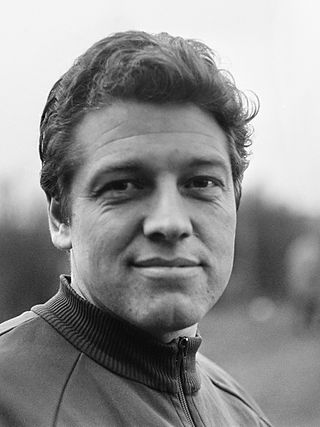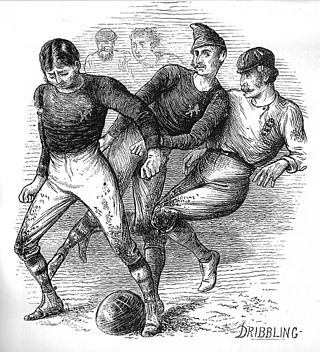Sources
- Reid, Harry (2005). The Final Whistle (Paperback). Birlinn. ISBN 1-84158-362-6.
- Hoggan, Andrew (1995). Hearts in Art (Hardback). Mainstream. ISBN 1-85158-736-5.
| Personal information | |||
|---|---|---|---|
| Date of birth | 3 March 1951 | ||
| Place of birth | Glasgow, Scotland | ||
| Position(s) | Left-back, left winger | ||
| Senior career* | |||
| Years | Team | Apps | (Gls) |
| 1968 | Renfrew | ||
| 1968–1969 | Queen's Park | ||
| 1969 | Kirkintilloch Rob Roy | ||
| 1969–1973 | Hearts | 60 | (11) |
| 1973–1980 | Celtic | 130 | (15) |
| 1980 | Philadelphia Fury | 23 | (4) |
| 1981–1982 | Montreal Manic | 28 | (4) |
| 1981–1982 | Montreal Manic (indoor) | ||
| Managerial career | |||
| 1983 | Montreal Manic | ||
| 2008 | Sunshine Coast | ||
| *Club domestic league appearances and goals | |||
Andy Lynch (born 3 March 1951) is a Scottish football player and coach who played as a left winger or left back. He played for Heart of Midlothian and Celtic, and later in the North American Soccer League for Philadelphia Fury and Montreal Manic. He also coached Montreal and, later, Australian club Sunshine Coast.
Lynch moved to Queens Park from Renfrew Juniors in his teens, and played for their reserve side before returning briefly to the Junior ranks with Kirkintilloch Rob Roy.
Lynch was quickly identified as being one of the most promising Junior players in Scotland, and soon attracted interest from Blackpool, Coventry City, Dunfermline Athletic and Hearts.
He earned a second chance in senior football when he joined Heart of Midlothian, signing for the Maroons in 1969. In 4 seasons at Tynecastle, Lynch scored 21 goals in just over 100 appearances from the left wing position. He was capped at under-23 level for Scotland under Tommy Docherty.
In February 1973, Jock Stein paid £35,000 to sign Lynch for Celtic and, although Lynch was initially ineffective as a winger at Parkhead due to a chronic pelvic injury, Stein successfully converted him into a left back.
While with Celtic he won three Scottish league titles and the Scottish Cup twice. He scored the only goal, a penalty, in the 1977 Scottish Cup final against Rangers.
The following season, Lynch became club captain at Celtic Park.
After Jock Stein's departure from Celtic Park in 1978, Lynch continued at left-back (and as captain in the absence of Danny McGrain) during Billy McNeill's first season in charge of the club.
The memorable 1978-79 campaign culminated in a League Championship win over ancient rivals Rangers. The title was won in a winner-takes-all encounter, which is simply referred to as 'The 4-2 Game'.
Lynch moved to North America in 1980, where he continued his playing career in the North American Soccer League with the Philadelphia Fury and the Montreal Manic before moving into coaching.
In 1983, he coached the Montreal Manic. [1] He also spent time as the assistant coach to the Canada national team in the same year, and was lined up to be Canada's Head Coach before returning to Scotland.
Lynch went on to run public houses, 'Andy Lynch's Bar', Argyle Street, Finnieston, Glasgow, and the 'Riverside Tavern' in the Gorbals.
He was briefly assistant manager at Albion Rovers in 1993. In 2008, Andy was initially the coach for Sunshine Coast F.C in the new Queensland State League (association football). (George Cowie replaced him after Round 5 of the competition.)
His son Simon is also a former professional footballer.
in 2010, Lynch headed a Middle East consortium's unsuccessful £400 million bid to purchase Liverpool Football Club.
In 2016, his autobiography, 'Hoops, Stars & Stripes' was co-written by Paul John Dykes, and released by CQN Books.

James Connolly Johnstone was a Scottish footballer who played as an outside right. Known as "Jinky" for his elusive dribbling style, Johnstone played for Celtic for 13 years, and was part of the 'Lisbon Lions', the team who won the 1967 European Cup Final, as well as winning nine consecutive Scottish championships. He scored 129 goals for Celtic in 515 appearances and was voted the club's greatest ever player by fans in 2002.

John "Jock" Stein was a Scottish football player and manager. He was the first manager of a British side to win the European Cup, with Celtic in 1967. Stein also guided Celtic to nine successive Scottish League championships between 1966 and 1974.

David White was a Scottish football player and manager. He played as a wing half for Clyde for his whole career, before managing Clyde, Rangers and Dundee.

William Semple Brown Wallace is a Scottish former football player and coach. He won the European Cup with Celtic in 1967 along with several domestic honours. His other clubs included Stenhousemuir, Raith Rovers, Heart of Midlothian and Dumbarton in the Scottish leagues, and Crystal Palace in English football.
Andrew Nesbit Wilson was a Scottish footballer who played for Middlesbrough, Heart of Midlothian, Dunfermline Athletic, Chelsea, Queens Park Rangers, Sporting Club Nîmois and the Scotland national team.

Sean Fallon was an Irish professional footballer. At his death, he was the oldest surviving person to have played for the Republic of Ireland national football team.

Robert White Murdoch was a Scottish professional footballer, who played as a midfielder for Celtic, Middlesbrough and Scotland. Murdoch was one of the Lisbon Lions, the Celtic team who won the European Cup in 1967. He later also managed Middlesbrough.
Robert Fleming Blyth Shankly was a Scottish professional football player and manager. He was the elder brother of Bill Shankly, the former Liverpool manager.

Celtic Football Club was constituted in 1888 with the purpose of creating a club for Irish Immigrants. Celtic play home games at Celtic Park, having moved there from their original ground in 1892. The club has always competed in the highest level of football in Scotland, currently the Scottish Premiership, since the inception of league football in Scotland. Celtic quickly established itself as a dominant force in Scottish football, winning six successive league titles during the first decade of the 20th century. A fierce rivalry developed with Rangers, and the two clubs became known as the Old Firm.
William Fernie was a Scottish football player and coach. He played as a forward for Celtic, Middlesbrough, St Mirren, Partick Thistle, Alloa Athletic, Fraserburgh, Coleraine and Bangor.
Joseph McBride was a Scottish footballer who played for clubs including Celtic, Hibernian, Motherwell and Dunfermline Athletic. He was a prolific striker and has the third highest tally of goals in the Scottish league since football resumed after the Second World War. McBride also represented both Scotland and the Scottish League.

John Walker was a Scottish footballer who played for Armadale, Heart of Midlothian, Liverpool, Rangers and Morton in the 1890s and 1900s. He won national titles in Scotland and England, and represented both Scotland and the Scottish League XI.
Nicol Smith was a Scottish footballer who played for Rangers.
Andrew Smellie Anderson was a Scottish footballer who played for Heart of Midlothian and the Scotland national team.
Francis Michael "Frank" Munro was a Scottish international footballer who played as a centre back.

Scotland was one of the earliest modern footballing nations, with Glasgow club Queen's Park early pioneers of the game throughout the UK. More clubs formed in Scotland, resulting in the commencement of the first major competition in 1873, the Scottish Cup, then the founding of the Scottish Football League in 1890. With the official sanctioning of professionalism, the Old Firm of Celtic and Rangers became dominant in Scotland, and remain so, although other clubs have enjoyed brief periods of success too.

Andrew William Halliday is a Scottish professional footballer who plays as a midfielder or left-back for Scottish Premiership club Motherwell, on loan from Heart of Midlothian. He has previously played for Livingston, Middlesbrough, Walsall, Blackpool, Bradford City, Gabala and Rangers.
The 2017–18 season is the 137th season of competitive football by Heart of Midlothian F.C. (Hearts) with the team participating in the Scottish Premiership. Hearts are playing their third consecutive season in the top tier of Scottish football, having been promoted from the Scottish Championship at the end of the 2014–15 season. They also competed in the League and Scottish Cup.

The 2022–23 season was the 126th season of competitive football in Scotland. The domestic season began on 9 July 2022 with the first Scottish League Cup group stage matches, and the first round of matches in the 2022–23 Scottish Premiership were played on 30 July.